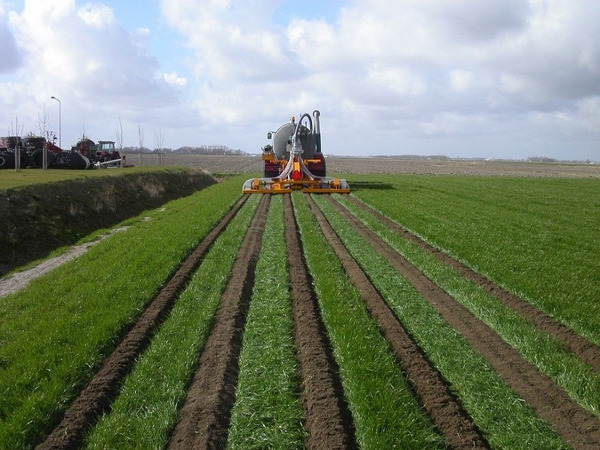It consists of dairy farmers, breeders of maize and grass varieties, suppliers (fertilisers and feeds) and research organisations (e.g. Wageningen University & Research). Its research focusses on the possibilities of intercropping silage maize with service crops, such as undersown grass or a mixture of rye and winter pea in combination with very early maize varieties. The different cropping systems are tested under different tillage systems (ploughing versus non-inversion or minimum tillage).The tested systems aim at improving soil and environmental quality while increasing forage production. The project also comprises model calculations in order to identify new rotation options on dairy farms ranging from intercropping to rotation of maize with other forage crops or arable crops.
The actor group meets 3-4 times a year. During the meeting of 27 June, a short outline of the DiverIMPACTS project with special attention to this case study was presented. The group is willing to get involved in the DiverIMPACTS case study, preferably in combination with meetings of the research project.
Additionally, there was a discussion about the progress in the experiments and about the nitrogen dynamics of rotation of grass with arable crops like maize or potatoes. At the end of the meeting, the group paid a visit to one of the field experiments. The next meeting is planned for 13 October.
Further information
Contact
Wim van Dijk, WUR, case study leader




 tap and then scroll down to the Add to Home Screen command.
tap and then scroll down to the Add to Home Screen command.
Disqus
In order to use the comment function, you must register with the third-party provider "Disqus".
When you activate this function, your browser establishes a direct connection with the servers of the third-party provider. We would like to point out that data is transmitted to the third-party provider after activation, and the latter may set cookies that can also be used for analysis and marketing purposes. For more information, please refer to our privacy policy.
Activate